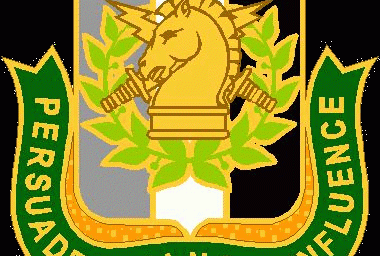Iraq Government Assumes Command of Military
The Iraqi government has declared itself in command of its armed forces as of today.
Iraq’s government takes command of its armed forces from the U.S.-led coalition Thursday, a milestone American officials have hailed as crucial to the country’s difficult road to independence and eventual withdrawal of foreign troops.
However, Iraq’s bloodshed continued in the hours before the handover. Six bomb attacks targeting police patrols in Baghdad killed at least 17 people and wounded more than 50.
“This is such a huge, significant event that’s about to occur,” U.S. military spokesman Maj. Gen. William Caldwell said Wednesday of the handover. “If you go back and you map out significant events that have occurred in this government’s formation in taking control of the country, tomorrow is gigantic.”
The heavily touted transfer was scheduled to take place five days ago, but was canceled at the last minute as the two sides tried to work out differences over the documents involved. Neither the Iraqis nor coalition officials would describe the exact nature of the disagreement, except to say that it was procedural rather than substantive. Caldwell said the two sides decided it would be better to delay the event until there was complete agreement. “It’s the one event that puts the prime minister directly in the operational control of his military forces as his role as the commander in chief,” Caldwell said. “So that’s not something you want to rush into.”
Turning over control of the country’s security is vital to any eventual drawdown of U.S. forces here. After disbanding the remaining Iraqi army after the U.S.-led invasion in 2003, coalition forces have been training the new Iraqi military. However, it is unclear exactly how quickly Iraqi forces will be prepared to take over their own security.
It’s not entirely clear that anything substantive has taken place here, Caldwell’s proclamations notwithstanding. Iraq’s government dubbed itself “sovereign” quite some time back without gaining much in the way of actual autonomy. To say that the Iraqi prime minister has command of armed forces that are unprepared to handle the security threats facing the nation, infiltrated by enemy agents, and split along sectarian lines is not quite the same thing as saying the U.S. president is in command of our military; one is theoretical, the other tangible.
Still, the more symbols of independence taken on by the Iraqi government, the better. Perhaps by going through the motions of sovereignty is a necessary precursor to its realization.





Fine they have a government and their own army…why do we need to stay any longer?
Hi James,
You might want to add to your list of Iraqi military weaknesses.
It is an army that relies on the US for armor, artillery, medical, logistic, airstrike and communications support. Without the US, it couldn’t run operations above the company level, no matter what the PR says. The US has a de facto veto.
The Navy has four boats and the Air Force doesn’t own a plane with so much as a gun on it.
The Iraqi military is still a paper-tiger, cannon fodder for internal security purposes only. As such, it is not an instrument of national sovereignty. There are NO plans to properly equip the Iraqi military as a national armed force should be.
It’s worth noting that the US military spokesman, Lt. Col “Baghdad Barrie” Johnson, gave at least three different excuses for the double-postponement of this ceremony, none of which gave the real reason, and that the Iraqis described the disagreement over the document as “it deals with the whole handover of sovereignty.”
Here’s my previous post on the mystery of the postponed ceremony.
Regards, Cernig
Cernig: A fair point, and one I’ve made before. We’ll likely have loggies at the FOB’s for the foreseeable future, even if our combat arms folks go home.